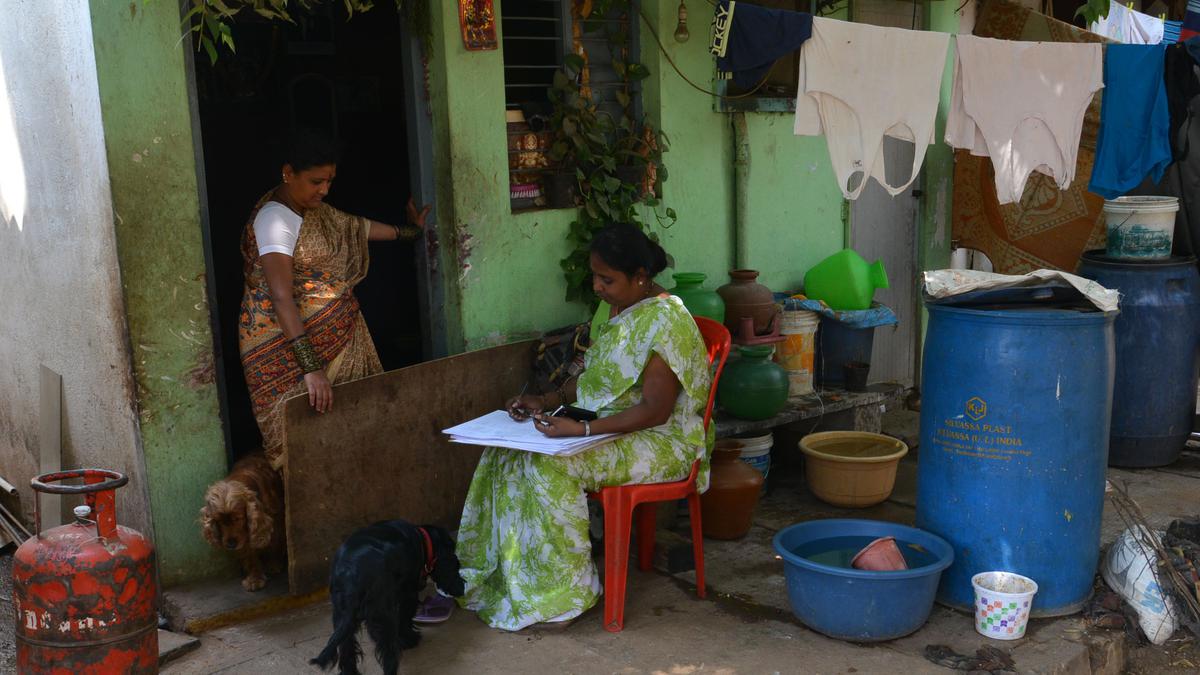
Karnataka puts caste survey data in cold storage Premium
The Hindu
The survey, conducted by the Karnataka State Backward Classes Commission and popularly called the caste census, has been caught in a political crossfire for over five years now.
The publication of the caste survey data by the Bihar government has had a ripple effect in Karnataka, with the focus now on the Congress government’s move to accept and release the State’s socio-economic and educational survey report that was finalised in 2018.
The survey, conducted by the Karnataka State Backward Classes Commission and popularly called the caste census, has been caught in a political crossfire for over five years now. The Veerashaiva/Lingayats and Vokkaligas (the land-owning and politically powerful communities that have for decades held a grip on power in the State) insist that the results not be published, while a large number of backward communities, without political representation so far, want it to see the light of the day.
If published, the survey outcome could alter the power equations in Karnataka besides impacting the backward classes reservation matrix. It is estimated that about 200 of the most backward communities, that have had no political representation so far, could benefit from the move. With the term of the commission’s chairman ending in November, the report is expected to be submitted soon.
Conducted in 2015, a first since the last census held in 1931, the survey has not been submitted to the government since the report was finalised in 2018. Successive governments, including the previous Congress government led by Siddaramaiah during whose term the census was conducted, have dithered on accepting the report fearing a political backlash from the Vokkaligas and Veerashaiva/ Lingayats. Of the 23 Karnataka Chief Ministers, 16 have been from the two communities, and only five, including the incumbent Chief Minister, have belonged to Other Backward Classes.
A selective leak of data from the census revealed that the population of Lingayats and Vokkaligas stood at 14% and 11%, respectively, as opposed to the general perception that it is higher. It was feared that if published and authenticated, this data could possibly reduce the influence of these groups in the political sphere.
An earlier narrative stated that the report could not be submitted to the previous Congress government as the commission’s secretary had not affixed his signature. Hence it had become clear that the government, which had asked for the report, did not want to head into the 2018 Assembly elections by antagonising the two communities.
Representatives from the two communities have termed the ₹162 crore-worth census exercise unscientific and unreliable. They claim that the questionnaires were “misleading” and “aimed at dividing the communities into subsects to deliberately bring down numbers.”

Three women died as a tractor carrying 13 people overturned into a kanmoi (tank) near Mudukulathur in Ramanathapuram district on Friday. Police said a group of people from Koovar Kootam village, which did not have a ration shop, travelled three km to nearby Chinnapothikulam village to buy grocery items at the ration shop functioning there.





















 Run 3 Space | Play Space Running Game
Run 3 Space | Play Space Running Game Traffic Jam 3D | Online Racing Game
Traffic Jam 3D | Online Racing Game Duck Hunt | Play Old Classic Game
Duck Hunt | Play Old Classic Game










